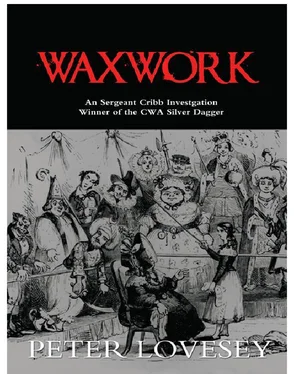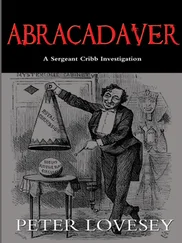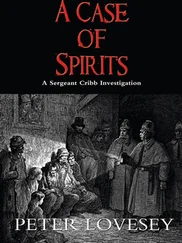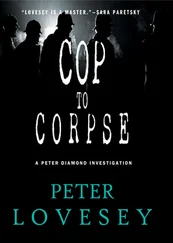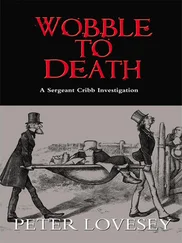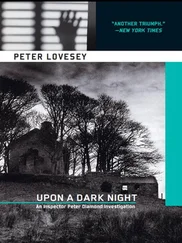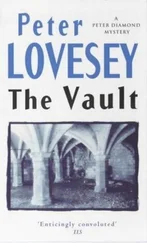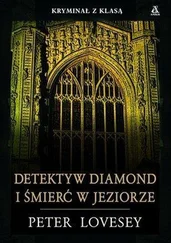Peter Lovesey - Waxwork
Здесь есть возможность читать онлайн «Peter Lovesey - Waxwork» весь текст электронной книги совершенно бесплатно (целиком полную версию без сокращений). В некоторых случаях можно слушать аудио, скачать через торрент в формате fb2 и присутствует краткое содержание. Жанр: Исторический детектив, на английском языке. Описание произведения, (предисловие) а так же отзывы посетителей доступны на портале библиотеки ЛибКат.
- Название:Waxwork
- Автор:
- Жанр:
- Год:неизвестен
- ISBN:нет данных
- Рейтинг книги:3 / 5. Голосов: 1
-
Избранное:Добавить в избранное
- Отзывы:
-
Ваша оценка:
- 60
- 1
- 2
- 3
- 4
- 5
Waxwork: краткое содержание, описание и аннотация
Предлагаем к чтению аннотацию, описание, краткое содержание или предисловие (зависит от того, что написал сам автор книги «Waxwork»). Если вы не нашли необходимую информацию о книге — напишите в комментариях, мы постараемся отыскать её.
Waxwork — читать онлайн бесплатно полную книгу (весь текст) целиком
Ниже представлен текст книги, разбитый по страницам. Система сохранения места последней прочитанной страницы, позволяет с удобством читать онлайн бесплатно книгу «Waxwork», без необходимости каждый раз заново искать на чём Вы остановились. Поставьте закладку, и сможете в любой момент перейти на страницу, на которой закончили чтение.
Интервал:
Закладка:
Cribb was not deceived. Jowett was planning that report. In case charges of conspiracy were mooted, he wanted to be certain there was a case to be made.
He answered forthrightly, ‘I’ll give you my opinion, sir. Cromer and Allingham are guilty men, but they plotted this so cleverly that I can’t see the Director of Public Prosecutions taking it up. I believe it happened like this. The murder of Josiah Perceval was Miriam Cromer’s decision alone. During the weekend she had told her husband she was being blackmailed. How he took the news can only be guessed at, but his remedy was to discuss the matter with his solicitor, which he did that Monday, sacrificing his morning in Brighton. Miriam may have been dissatisfied with Howard’s remedy, or she may have decided to settle the matter in her own way on an impulse-when she had Perceval’s keys in her hand. She had the means of faking a suicide, and if you want the truth, I think she would have got away with it if the poison had acted as she expected. It didn’t, and ultimately even Inspector Waterlow could not escape the conclusion that he had a case of murder on his hands.’
Jowett clicked his tongue. ‘That’s an unnecessary slur on a fellow officer, Sergeant.’
Without altering his tone, Cribb said, ‘As it’s unnecessary, I withdraw it, sir. Once it became a murder inquiry, and the evidence of blackmail was uncovered, Miriam Cromer needed something quite remarkable to save her from the gallows. I believe Allingham set out to provide it. He knew the case against her was so damning that she was practically certain to be convicted. But if she confessed and pleaded guilty, capitulated, as it were, she might, on the contrary, be saved. It meant, you see, that she would be convicted on her own account of what happened, not the prosecution’s. This provided the opportunity of writing a confession that was true in everything it said, but left a vital piece of information unexplained.’
‘The business of the key,’ put in Jowett.
‘Yes, Allingham must have analysed the facts of the case and seized on this as the best chance of introducing an element of doubt. No one would mention it until after the trial. If it was brought to the Home Secretary’s attention, it would have to be investigated. The plan was to divert suspicion towards Howard Cromer. Circumstances made him the only alternative suspect, but circumstances had produced two bonuses: the picture in the Photographic Journal and the fact that Cromer was not in Brighton on the morning of the murder. The picture was sent to the Home Secretary. In due course, I was sent to see Cromer. He was evasive about his movements. He hedged about the train he caught to Brighton. They must have known we would check the minutes of the A.G.M. and discover he was absent in the morning. And they still had their trump to play.’
‘Cromer’s disappearance?’
Cribb nodded. ‘That was calculated to force us into action. With Howard on the run like a guilty man, we would need to consider extradition. The gamble was that in order to obtain a warrant, we would have to arrange a pardon for Miriam Cromer. As soon as she was pardoned Howard would surrender to the police. He would announce that he had an alibi for the morning of the murder, and Allingham would confirm it.’
‘But that would confirm his wife’s guilt,’ said Jowett.
Cribb had waited for this. ‘Autrefois Convict.’
‘I beg your pardon.’
‘Don’t you have French, sir? A legal expression. It dates back to common law. A person cannot be prosecuted twice for the same offence. Even if we knew Miriam Cromer was a murderess and brought her up before a magistrate, she could plead Autrefois Convict and walk out a free woman.’
‘I am aware of the law, Cribb,’ said Jowett sourly. ‘It was the terminology that escaped me.’
In case something else escaped the Chief Inspector, Cribb said, ‘It was a very cunning idea, sir, not easy to unravel. But like all ideas it depended on people to carry it out. Their nerves were tested to the limit. Miriam Cromer in the death-cell waiting for Howard to make his move. Howard, who had to tread the tightrope between supplying information and concealing it. Allingham, the architect of the plan, knowing either of the others could ruin it and destroy his career. Howard was the first to put a foot wrong. The unforeseen intervened, in the person of the bearded man they decided was a detective. I still don’t know who he was-probably never will. I was livid when I heard about him, but on consideration I have to admit he did us a good turn. Howard Cromer was so anxious for an indication that the police had taken his bait that he assumed this visitor was one of ours, instead of some morbidly-inclined member of the public. By inviting the man in, humouring him and taking his picture, he showed how desperate he was to interest the police in himself. And of course I heard of it from Allingham, who was no less interested to confirm whether the man was from the Yard. It was an instructive incident, and it need never have happened if Cromer had politely sent the man away. It made me think.’
‘I must say, I thought it suspicious myself.’
Cribb disregarded the contribution. ‘The next day Howard Cromer vanished.’
‘The trump card.’
‘I couldn’t ignore it,’ said Cribb. ‘I decided to make use of it myself-to secure the meeting with Miriam Cromer. She surprised me. I didn’t expect to be confronted by a woman so fully in command of herself. The only way I could see of getting at the truth was persuading her that we had swallowed the story and simply wanted evidence of Howard’s guilt. I thought she might become over-confident. That, as you know, is what happened. She wasn’t satisfied with the original plan. She had thought of an improvement. Instead of letting us draw our own conclusions as to Howard’s guilt, she proceeded to confirm them, and she expected Allingham, out of regard for her, to withhold the alibi. Then she would be pardoned; Howard would hang and she could begin a new life with Allingham, who had always admired her. She believed she could count on Allingham’s co-operation by convincing him that Howard had murdered Judith Honeycutt and so deserved to hang.’
‘For another murder?’ said Jowett. ‘That’s perverted logic, if ever I heard it.’
‘Ten weeks in custody had given her time to fashion the facts to suit her purpose,’ said Cribb. ‘She overreached herself. Allingham might have allowed emotion to over-rule his judgment until he heard what Lottie Piper had confided to me-that Howard had engaged to marry Judith Honeycutt. Nothing had been said at the inquest about that betrothal, nor had Allingham been told of it. He saw in a flash that Miriam had had the motive for murdering Judith: she had wanted Howard for herself.’
Jowett stared bolt-eyed at Cribb. ‘She murdered the Honeycutt girl as well?’
‘I’m sure of it. Proving it now would help nobody, but it’s the only explanation. Consider how she behaved under the threat of blackmail. For weeks she said nothing to her husband about her ordeal. She made her own arrangements to meet Perceval’s demands-and it’s no light matter for a woman of her class to enter a pawnshop. Yet why didn’t she take Howard into her confidence? He knew about the photographs: he was the photographer. If the danger were simply the threat of scandal to their livelihood it would have been natural for her to turn to him, but she didn’t. There was a greater danger that only Miriam Cromer understood. Imagine what Howard Cromer’s reaction would have been to the news that the wife he worshipped was threatened with blackmail by his assistant. He would have been outraged. To submit to a cheap threat of that sort was unthinkable. I believe he would have dismissed Perceval instantly from his employment and threatened him with prosecution. Howard, you see, could not appreciate the greater danger to his wife-that Perceval by chance had unearthed a link in the chain that led to Judith Honeycutt’s murder. It was safer, Miriam Cromer decided, to make the payments herself, buy the photographs and say nothing to Howard, who still believed Judith’s death was due to suicide. So that was what she did, until the fateful day when Perceval told her he was going to Hampstead to try to buy the plates. The thing she feared most was about to happen. Perceval would trace the name of Julian Ducane and very probably learn the story of Judith’s death. What Miriam had thought was buried was about to be disinterred. She decided to poison Perceval as she had poisoned Judith.’
Читать дальшеИнтервал:
Закладка:
Похожие книги на «Waxwork»
Представляем Вашему вниманию похожие книги на «Waxwork» списком для выбора. Мы отобрали схожую по названию и смыслу литературу в надежде предоставить читателям больше вариантов отыскать новые, интересные, ещё непрочитанные произведения.
Обсуждение, отзывы о книге «Waxwork» и просто собственные мнения читателей. Оставьте ваши комментарии, напишите, что Вы думаете о произведении, его смысле или главных героях. Укажите что конкретно понравилось, а что нет, и почему Вы так считаете.
